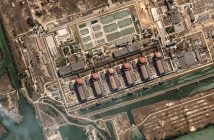In the video above, South Africa’s Minister of Energy Jeff Radebe underlines the inclusion of nuclear in South Africa’s energy mix
- With nuclear power facing an uncertain future in many countries, the world risks a steep decline in its use in advanced economies that could result in billions of tonnes of additional carbon emissions, according to a new report by the International Energy Agency (IEA).
Nuclear is the second-largest low-carbon power source in the world today, accounting for 10% of global electricity generation.It is second only to hydropower at 16%. For advanced economies – including the US, Canada, EU states and Japan – nuclear has been the biggest low-carbon source of electricity for more than 30 years and remains so today.
It plays an important role in electricity security in several countries. However, the future of nuclear power is uncertain as ageing plants are beginning to close in advanced economies, partly because of policies to phase them out but also as a result of economic and regulatory factors.
Without policy changes, advanced economies could lose 25% of their nuclear capacity by 2025 and as much as two-thirds of it by 2040, according to the new report, Nuclear Power in a Clean Energy System.
“Without an important contribution from nuclear power, the global energy transition will be that much harder,” said Dr Fatih Birol, the IEA’s executive director.
“Alongside renewables, energy efficiency and other innovative technologies, nuclear can make a significant contribution to achieving sustainable energy goals and enhancing energy security. But unless the barriers it faces are overcome, its role will soon be on a steep decline worldwide, particularly in the US, Europe and Japan.”
Nuclear’s role in energy transitions
The lack of further lifetime extensions of existing nuclear plants and new projects could result in an additional 4 billion tonnes of CO2 emissions.
Some countries have opted out of nuclear power in light of concerns about safety and other issues.
Many others, however, still see a role for nuclear in their energy transitions but are not doing enough to meet their goals, according to the report.
With its mission to cover all fuels and technologies, the IEA hopes that the publication of its first report addressing nuclear power in nearly two decades will help bring the topic back into the global energy debate.
The new report finds that extending the operational life of existing nuclear plants requires substantial capital investment. But its cost is competitive with other electricity generation technologies, including new solar and wind projects, and can lead to a more secure, less disruptive energy transition.
A sharp decline in nuclear power capacity in advanced economies would have major implications. Without additional lifetime extensions and new builds, achieving key sustainable energy goals, including international climate targets, would become more difficult and expensive.
“Policy makers hold the key to nuclear power’s future,” Dr Birol said.
He added: “Electricity market design must value the environmental and energy security attributes of nuclear power and other clean energy sources. Governments should recognise the cost-competitiveness of safely extending the lifetimes of existing nuclear plants.”
Author: Babalwa Bungane
This article was originally published on ESI Africa and is republished with permission with minor editorial changes.










